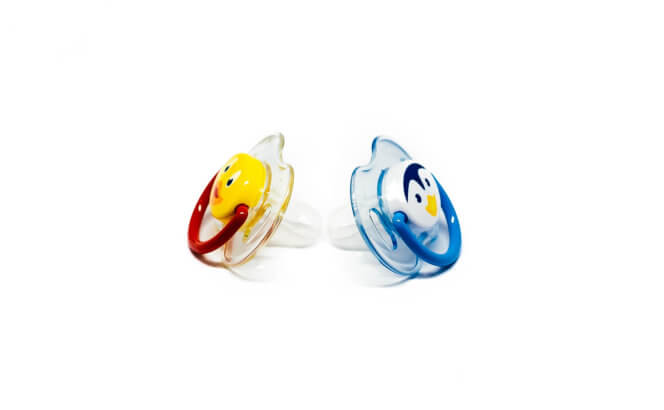UPDATE: The baby has been born, it’s a boy and he has been named. In this article, published before the birth, sociologist Jane Pilcher made a sociologically informed prediction that Archie might be on the cards as a forename for the Duke and Duchess of Sussex’s baby.
There is always speculation – and betting – about the forename likely to be given to a Royal baby. In the case of the first child of the Duke and Duchess of Sussex (aka Harry and Meghan), the betting odds favour (for a girl) ‘Diana’ (4/1), ‘Victoria’ (7/1) or ‘Alice’ (12/1), and (for a boy) ‘Arthur’ (16/1), ‘James’ (16/1) or ‘Edward’ (25/1). Can sociology provide any insight to the Royal baby name game?
For any parent-to-be, choosing a forename for their baby is simultaneously exciting and worrisome. For one thing, forenames have derivative meanings, which parents may or may not be aware of (I’m sure my own parents were unaware that ‘Jane’ is a derivation of the Hebrew ‘Johanan’, meaning ‘god is gracious’. You can look up the meaning of your own forename here). More significantly, from a sociological perspective, forenames are meaningful in cultural terms, strongly linked to a person’s individual and social identities (Pilcher 2016). Typically, parents-to-be have a shortlist of forenames, and, consciously or not, these will be based on a mix of: their expectation of the sex of the baby; their own cultural identities (of social class, ethnicity and nationality, and cohort); family forename precedents; and a desire to mark the ‘unique’ and distinctive individuality of the new person they have made together.
Harry and Meghan’s baby is the first Royal baby to have both British and American parentage. This adds a twist to the standard speculation about what a Royal baby might be called, a twist not well reflected in the betting odds. The UK and the US may share the same language, but there are differences in the popularity of baby names. The only boys’ name featuring in the top 5 of popular baby names in both the UK and the US is ‘Noah’. Only ‘Olivia’ and ‘Ava’ feature in both the top 5 girls’ names in the UK and in the US (Office for National Statistics 2017; Social Security Administration 2017). ‘Diana’ is not a popular baby name choice in either the UK or the US, and in any case, nowadays, babies are rarely named after very close relations. However, the exception – when a parent has passed away – clearly applies in Harry’s case, as reflected in the 4/1 odds for ‘Diana’.
Research by mynametags.com (2019) points to cultural differences in the perception of forenames among UK and US parents, as well as the issue of how forenames are pronounced in some US accents. ‘Victoria’ is much more popular a forename in the US than it is in the UK, but is perceived by some users of baby name and parenting websites to be pretentious. ‘James’ is a popular choice among both UK and US parents, but precisely because of its popularity, is perceived as ‘overused’. ‘Arthur’, which has odds of 16/1, may be unappealing to Harry and Meghan because in some American accents it is pronounced more like ‘author’ (mynametags.com 2019).
As suggested by the bookies’ odds, it’s much harder to predict a forename for a Royal baby boy and, in part, this is a reflection of changing trends in boys’ names. In England and Wales, data show that boys’ forenames are becoming increasingly diverse, and at a faster pace than forenames for girls are. For example, in 1996, there were 3,714 names registered at birth for boys, compared to 5000 for girls. By 2016, there were 6, 247 names registered at birth for boys, compared to 7,500 for girls (Office for National Statistics 2017). Forenames for boys are also becoming more informal. ‘Alfie’, ‘Archie’ and ‘Freddie’ have become more popular as registered birth forenames, rather than the more formal ‘Alfred’, ‘Archibald’ or ‘Frederick’ from which they are derived. Perhaps, given their tendency to push at the boundaries of Royal protocol, Harry and Meghan might opt for this contemporary twist on a more traditional boys’ forename? Interestingly, there is not the same informalisation of forenames for girls in the UK (in fact, there is a growing popularity of longer double-barrelled forenames for girls), and nor is this trend evident in the top US baby names.
There are lots of insights that sociology could provide here about these gender-related forenaming trends, not least the entrenched rigidity of sex and gender-typed forenames in English-speaking countries like the UK and the US (see Pilcher 2017). Given Meghan’s feminism, is there an outside chance she might favour disrupting the reproduction of sex and gender binaries by opting for a sex and gender-neutral forename? But even here, differences in baby name popularity between the UK and the US complicate matters. Take the forename ‘Avery’. In the UK in 2017, this was ranked at 581 in popularity for boys and 637 for girls – making it a pretty much a sex and gender-neutral forename (albeit not popular for either girls or boys; see Office for National Statistics 2017). But according to Social Security Administration (2019) data, in the US, ‘Avery’ is both a more popular and a more feminine forename, ranking at 15 in popularity in the list of girls’ names (181st for boys’ names).
Given how culturally loaded forenames are, it is a wonder that any parent ever overcomes the paradox of choice and decides once and for all what to call their child. Yet, from a sociological perspective, it is clear that the everyday practice of naming a child is strongly directed by prevailing social norms and standards, not least those linked to sex and gender, social class, ethnicity and nationality. For parents (including Harry and Meghan), these effectively reduce the number of possible forenames that might be ‘appropriate’ for their child.
For the Royal baby, the bookies may be favouring ‘Diana’ and ‘Arthur’ or ‘James’ but my bet is this: whatever the baby is called, its forename is going to rise in popularity in the baby name charts of both the UK and the US.
If you are looking for help, advice or support in relation to gambling, please go to: BeGambleAware.org or contact the National Gambling Helpline on 0808 8020 133.
References
MyNameTags.com (2019) ‘Prince ‘Hairy’: Our research reveals how parents across the world feel about names and our advice if you’re planning to place a bet on the Royal baby name’,
Office for National Statistics (2017) Baby Names in England and Wales
Pilcher, J. (2017) ‘Names and “Doing Gender”: How Forenames and Surnames Contribute to Gender Identities, Difference and Inequalities’, Sex Roles 77 (11-12): 812-822.
Pilcher, J. (2016) ‘Names, Bodies and Identities’, Sociology 50 (4): 764-779
Social Security Administration (2019) ‘Top Baby Names of 2017’
Dr Jane Pilcher is an Associate Professor in the Department of Sociology at Nottingham Trent University.


